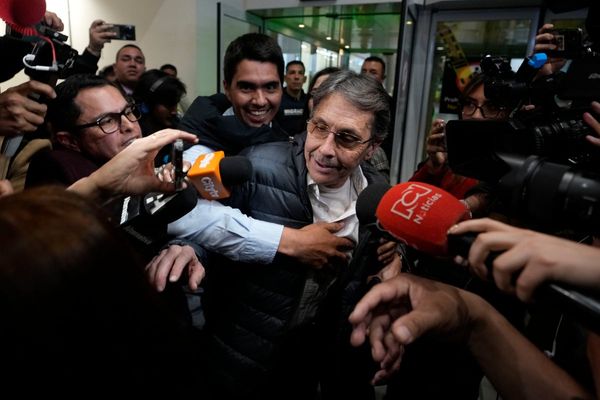
To Kill A Mockingbird reinvents itself for every new generation. And for me, it has been a touchstone—one of the few novels I return to repeatedly in order to relive the experience. What make the book (now a graphic novel and a Broadway play) and Harper Lee even more interesting is the notion of the reclusive writer in our society.
I have always been curious about writers who chose to be private or reclusive, shunning fame and attention. What compels them to shun fame when the rest of us rush to be heard and seen? For Lee, it was simply that she was very sure she could not write a book as good as Mockingbird, and she did not want to publish something that fell short of that classic. Also, from the start, she had been a private person, content to avoid the spotlight. After Mockingbird, she returned to practising law. In the sequel/prequel, Go Set A Watchman, it was heartbreaking to see the fall of Atticus Finch. A beloved character in modern literature famous for his tolerance and compassion now appeared as a bigot in the sequel.
Most readers know by now the controversy that once surrounded the pre-publication of Go Set A Watchman: that Lee had not authorised it, or, if she had, it was at a time when she was probably too mentally infirm to know what she was doing. Now that Go Set A Watchman has been selling well, the question for me is: what happens to Lee’s reputation as a reclusive author who stubbornly refused to publish anything after Mockingbird? She refused public appearances and interviews, famously responding to an invitation to address a gathering in Alabama by saying, “Well, it’s better to be silent than to be a fool.”
Apart from Lee, the list of reclusive writers is really long, but the most notable perhaps are: William Shakespeare, J.D. Salinger, Edgar Allan Poe, Hunter S. Thompson, Thomas Pynchon, William Faulkner and Marcel Proust. While the most famous of them all, Shakespeare, barely took the trouble to put his name to his works, women writers like George Eliot and J.K. Rowling sometimes posed as men so as not to reveal their true identities; Emily Dickinson did not step outside her house for two decades; Marcel Proust confined himself to a darkened, soundproof room to compose his masterpiece; Thomas Pynchon, Cormac McCarthy and Salinger, all resented any invasion of their personal space. The choice of these authors seems both spiritual and aesthetic. They do it to fulfil an impulse in their soul and in their art.
Among reclusive Indian authors, Aravind Adiga and Ruskin Bond are the more popular ones. Writers like Aubrey Menen and G.V. Desani kept a low profile for the most part. Known more by their reputation than from familiarity with their work, they should be read more by contemporary Indian readers. Both for a brief time were expatriate writers, one in the UK and the other in the US.
While Adiga became an overnight sensation after his debut novel The White Tiger won the Booker Prize in 2008, he managed to dodge the limelight very effectively, even resorting to giving interviews only by email. Bond, on the other hand, prefers to stay at Landour and visitors to Mussoorie will often find him sitting outside the Cambridge bookstore on Mall Road. I was fortunate to have met him, and he lovingly signed half a dozen books for me.
Why do some people go to extreme lengths to ensure deliberate obscurity, while we spend most of our lives struggling to emerge out of crowd so we can be pronounced special? Pynchon turned down the National Book Award in 1974 for Gravity’s Rainbow while Bob Dylan did not even bother to show up to collect his Nobel Prize in Literature. Ross Posnock’s interesting book, Renunciation: Acts Of Abandonment By Writers, Philosophers, And Artists, says that those who walk away from fame, from the world, from the limelight are not retreating but engaging. How so? Because renunciation, Posnock feels, is “a creative force”. The author looks at such “renunciates” in literature, philosophy and art: to name a few, the Canadian pianist Glenn Gould, philosophers Ralph Waldo Emerson and Thomas Merton, and writers Franz Kafka and Arthur Rimbaud. He also points out that there is not just one kind of “renunciation”—there are many versions and forms of walking away from the world. Posnock demonstrates in the book how saying “no” to the world can be as effective and energizing as saying “yes”.
It is ironic that when a successful author chooses to either stop producing work or avoid the limelight altogether, our interest in their work changes. Or, more accurately, our analysis of their work changes. Why did people regularly journey to Cornish, New Hampshire, to catch a glimpse of Salinger? And why is so little known about Pynchon? A writer who disappears or prefers to remain unidentified becomes a fiction, and with that comes guesswork, conjecture and, inevitably, mythologizing.
Furious Hours by Casey Cep presents us with a fascinating study on Lee’s book that never got published, The Reverend. If we were to discover what happened to it, the answers would probably never be as interesting—or as meaningful—as the fictions we create in their absence.
Maybe life is more fascinating when it withholds answers, because in place of answers we create fictions no real person could live up to.
V.R. Ferose is an inclusion evangelist and bibliophile, and also senior vice-president at SAP, based in Silicon Valley







